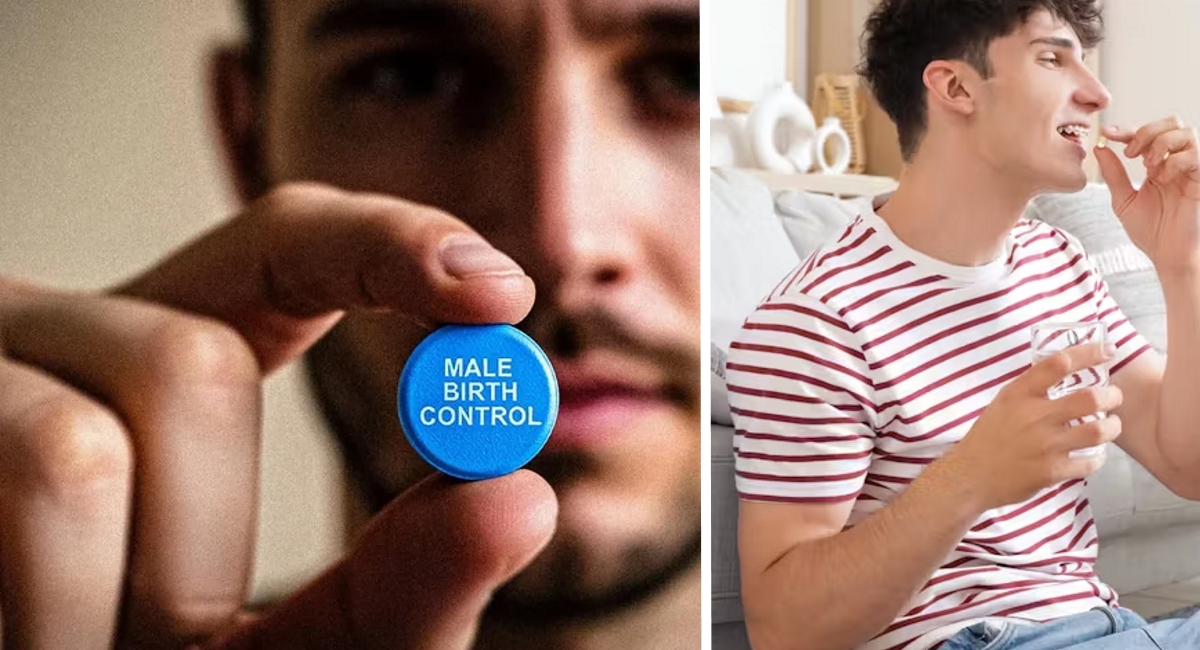A new male contraceptive pill with zero hormones has just passed its first human safety test, marking what scientists are calling a revolutionary moment in reproductive medicine. The pill, which targets sperm mobility without altering testosterone levels or triggering hormonal side effects, has stunned researchers after showing zero toxicity in early-stage human trials.
The drug — codenamed TDI-11861 — was developed by a research team led by Dr. Gunda Georg at the University of Minnesota and has already shown promise in earlier preclinical animal testing, where it temporarily disabled sperm movement for several hours without affecting libido or mood. Now, following a phase one trial conducted at the Oregon Health & Science University, the compound has cleared its first major hurdle by being declared “well-tolerated, non-toxic, and safe for further development.”

BREAKING: Scientists just confirmed the first-ever hormone-free male birth control pill is SAFE in human trials. Zero side effects. No testosterone suppression. This changes EVERYTHING. 🧬— @DrNiaHall (@DrNiaHall) August 5, 2025
Unlike previous male contraceptive attempts, which have relied on testosterone suppression and often caused mood swings, weight gain, and even depression, this new pill works by targeting an enzyme called sAC (soluble adenylyl cyclase), which sperm require to swim. By blocking sAC activity, the pill effectively renders sperm immobile — but only for a short window of time, and without altering hormone levels. According to the lead paper published in Cell, this mechanism represents a completely new approach to birth control that could finally balance the burden of contraception between men and women.
In early human testing, participants experienced no hormonal changes, no reported side effects, and no detectable long-term alterations in sperm production. One trial volunteer, speaking anonymously to Stat News, said, “It felt like taking a vitamin. There was no difference in energy, mood, or sex drive. But the science behind it is incredible.”

The trial, conducted with oversight from the National Institutes of Health, involved 16 healthy male participants ages 18 to 35, who were monitored intensively for six weeks. Bloodwork, semen samples, and full-body scans were all used to track the drug’s effects in real time. All indicators pointed to strong bioavailability and rapid, predictable metabolism — traits researchers say are crucial for a contraceptive meant to be taken just hours before sex.
No hormones. No daily routine. No mood side effects. A male birth control pill you take only before sex? The game just changed. 💊— @ScienceMami (@ScienceMami) August 5, 2025
While male birth control has long been discussed, real progress has been elusive. Past efforts like Vasalgel injections or testosterone-based pills have either failed in trials or been abandoned due to concerns over side effects and market viability. In contrast, this new pill avoids those pitfalls entirely by skipping the endocrine system altogether — a strategy that scientists say makes it far more likely to gain FDA approval.
The company developing the drug, YourChoice Therapeutics, has confirmed that phase two trials will begin later this year, expanding to over 150 participants across multiple states. CEO Akash Bakshi told TechCrunch that the pill’s success could signal “the most significant moment in male reproductive health since the invention of the condom.” He added that if trials continue on track, the product could be ready for FDA review as early as 2027.
The science community has responded with cautious excitement. Dr. Logan McNeil, a urologist at Mount Sinai, told ScienceAlert that this compound’s mechanism “avoids the hormonal rollercoaster entirely,” and could finally silence critics who claimed men wouldn’t tolerate side effects. “There are no side effects to tolerate,” he said. “It’s clean science.”
A once-before-sex male pill that works in hours and wears off naturally? We just saw the future of reproductive responsibility shift right in front of us. 🚹— @ReproRightsNow (@ReproRightsNow) August 5, 2025
Pharmaceutical insiders say there’s already growing interest from global healthcare providers. According to a market forecast shared with Bloomberg Health, demand for non-hormonal male contraception could exceed $3.5 billion globally within five years. That prediction is supported by a recent Pew survey showing that over 61% of men under 35 would consider taking a male pill “regularly or situationally” if it carried no hormonal side effects.
Despite the enthusiasm, some advocacy groups have warned against premature celebration. The Center for Contraceptive Equity released a statement urging full transparency and rigorous monitoring in future trial phases. Their director, Jamie Rowe, reminded media outlets that “we’ve been burned before by so-called breakthroughs,” referencing abandoned projects like the 2016 WHO-funded testosterone shot study. Still, the group acknowledged the pill’s “unprecedented potential.”
Across social media, the response has been largely celebratory. TikTok creators have begun sharing videos about the pill’s science, while others have called on male celebrities and influencers to speak publicly in support of the technology. On Reddit, a post about the trial reached the front page within hours, with one user writing, “This is the first time I’ve felt included in the birth control conversation.”
Medical professionals also point to the wider social implications. Dr. Lena Stokes, who works with Planned Parenthood Los Angeles, told Time Magazine that the pill could reshape how men and women negotiate sex, responsibility, and family planning. “It’s not just a pill,” she said. “It’s the beginning of a shift in accountability.”
Already, several men’s health nonprofits are campaigning to ensure the drug remains affordable and accessible if it reaches the market. YourChoice has publicly stated they are exploring generic partnerships to avoid pricing models that mimic the skyrocketing costs of female contraceptives in the U.S. According to a Kaiser Health News breakdown, the average monthly cost of hormonal birth control still exceeds $50 in many states — a barrier this new product could help address if priced responsibly.
If the phase two trials mirror the early success, scientists say the pill could redefine the relationship men have with contraception. In the words of Dr. Gunda Georg, who spearheaded the research, “This isn’t a pipe dream anymore. It’s in motion. It’s real. And it works.”






